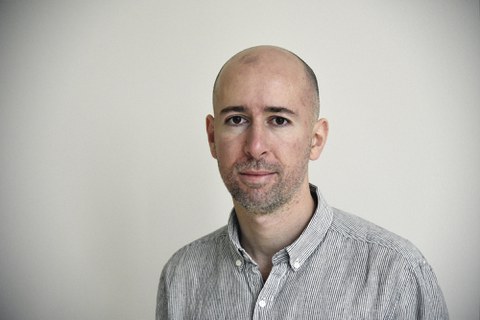Oct 01, 2025
The faculty welcomes Prof. László Kozma
Prof. László Kozma will take up the Chair of Algorithms at the Institute for Theoretical Computer Science at TU Dresden on October 1, representing this field in research and teaching. His main research focus is on the design and analysis of algorithms and data structures. Particular concerns are algorithms with approximation guarantees, dealing with uncertainty in the input, and data structures with adaptive properties.
He completed his computer science degree in 2006 at the Technical University of Cluj-Napoca in Romania and his M.Sc. in Computer Science in 2009, specializing in machine learning and data mining, at Helsinki University of Technology in Finland (now Aalto University). In 2016, László Kozma received his doctorate summa cum laude from Saarland University with a thesis on “Binary Search Trees, Rectangles and Patterns.” He then spent a year as a postdoctoral researcher at Tel Aviv University and Eindhoven University of Technology. Since 2018, he has been teaching and researching at Freie Universität Berlin as a junior professor in theoretical computer science in the field of algorithmics.
Prof. Kozma is very much looking forward to his work at the Chair of Algorithms: "I have been fascinated by algorithms ever since I learned to program as a child. They are like recipes: they are step-by-step instructions that tell computers how to get from a specific input to a desired output. Algorithms have been around for thousands of years, even before computers existed. For example, algorithms for multiplication or algorithms for determining the greatest common divisor of integers have been studied since ancient times. I find it fascinating that such questions are still relevant today and that algorithms also underlie modern technologies such as searching the Internet or determining the shortest route to our destination. It is remarkable how mathematical methods allow us to compare different algorithms and discuss their efficiency, what can be calculated efficiently and what cannot. Nevertheless, creativity still plays a major role in the development of algorithms, and it seems likely that only a small part of the space of efficient algorithms has been explored so far. Exciting times lie ahead!"
We are delighted to welcome Prof. Kozma as a member of our faculty and wish him every success in all his endeavors!

